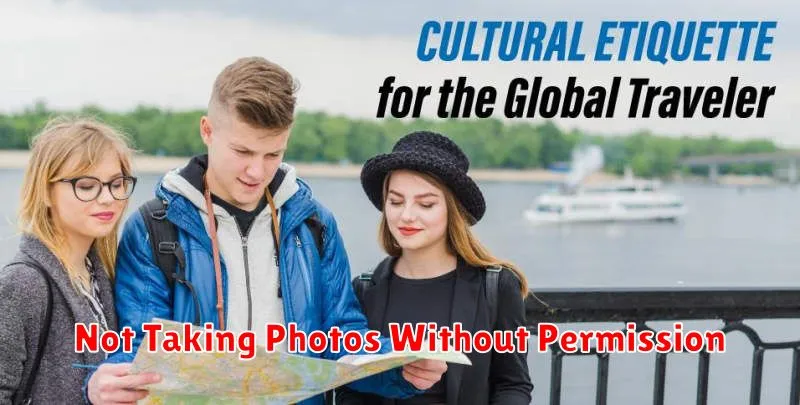Traveling abroad can be an enriching experience, offering opportunities for personal growth and a deeper understanding of the world. However, navigating unfamiliar cultural norms and etiquette can sometimes present safety concerns. Being aware of local customs, traditions, and social behaviors isn’t just about showing respect; it can also be crucial for your well-being and personal safety. This article will explore essential aspects of cultural etiquette that can contribute significantly to a safer and more enjoyable experience abroad, helping you avoid misunderstandings, potentially dangerous situations, and ensuring a smooth journey.
Understanding cultural etiquette plays a vital role in ensuring your safety while traveling internationally. From simple gestures and greetings to appropriate attire and dining practices, respecting local customs demonstrates cultural sensitivity and can prevent unintentional offense which could potentially jeopardize your safety. By familiarizing yourself with the specific cultural norms of your destination, you can navigate unfamiliar environments with confidence, minimize risks, and foster positive interactions with local communities. This knowledge empowers you to engage with the local culture respectfully and enhances your overall travel experience while prioritizing your personal safety.
Why Etiquette Matters in Safety
Observing local customs isn’t just polite; it’s a safety strategy. Blending in reduces your chances of being targeted by scams or petty theft. It shows respect for local culture, which can de-escalate potentially dangerous situations. In many cultures, specific gestures or phrases can be misinterpreted as disrespectful, leading to unwanted attention or even conflict. Understanding and adhering to these nuances can significantly enhance your safety while abroad.
Avoiding Offense in Dress and Behavior
Respectful dress and behavior are crucial for staying safe and fostering positive interactions abroad. Modesty is often key, particularly in conservative cultures. Research local customs regarding attire to avoid unintentional offense. This may include covering shoulders, knees, or even hair.
Public displays of affection are often frowned upon in certain countries, as are loud or boisterous behaviors. Be mindful of your volume and avoid drawing unnecessary attention to yourself. Respectful behavior can significantly enhance your safety and overall experience.
Respecting Religious and Local Customs
Demonstrating respect for local customs and religious practices is paramount for a safe and positive travel experience. Researching a destination’s cultural norms before arrival is essential.
This includes understanding appropriate attire, particularly when visiting religious sites. Modest dress is often required, and sometimes head coverings or the removal of shoes. Photography restrictions may also be in place. Be mindful of public displays of affection, which may be frowned upon in certain cultures.
Not Taking Photos Without Permission

In many cultures, taking photos of people without their explicit consent is considered rude and even offensive. It’s essential to always ask permission before photographing someone, especially in sensitive locations like religious sites or areas with marginalized communities.
Be mindful of cultural norms surrounding photography. Some cultures may have specific rules about photographing certain objects or individuals. Ignoring these customs can put you at risk and create unnecessary conflict.
Understanding Social Boundaries
Social boundaries differ significantly across cultures. What might be considered polite in one country can be deeply offensive in another. Respecting these unspoken rules is crucial for your safety and well-being while traveling. Misunderstandings can lead to uncomfortable situations or even conflict.
Observe local customs and interactions. Pay attention to personal space, physical contact, and acceptable topics of conversation. When in doubt, err on the side of caution and formality.
Learning How to Greet Locals Properly
Greeting customs vary significantly across cultures. A simple handshake might be acceptable in one place, while a slight bow is preferred in another. Using the appropriate greeting shows respect and demonstrates your willingness to engage with the local culture. This can significantly improve your interactions and create a positive first impression.
Misunderstandings or perceived disrespect due to incorrect greetings can sometimes lead to unnecessary tension or even escalate to uncomfortable situations. Taking the time to learn basic local greetings is a small effort with potentially significant rewards for your safety and overall travel experience.
Following Dining and Public Behavior Norms
Observing local dining customs can prevent unintentional offense. In some cultures, finishing all food is a compliment to the chef, while in others, it signals you’re still hungry. Researching these nuances beforehand can make a significant difference.
Public behavior varies greatly across cultures. Understanding acceptable levels of physical contact, speaking volume, and public displays of affection is crucial. What might be considered polite in one country could be seen as rude or even offensive in another. Being mindful of these cultural differences can enhance your safety and promote positive interactions.

